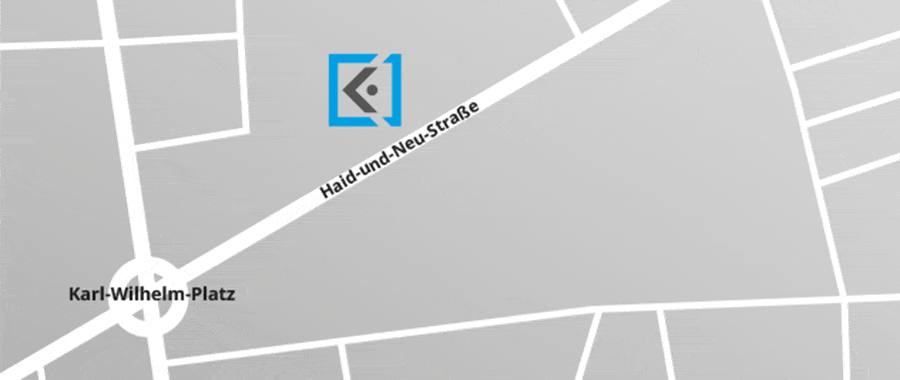Dream job Data Science – Part I: From math studies to high-level data specialist

an interview with Dr. Dennis Müller
Being a Data Scientist is one of the hottest jobs at the moment. But how does one actually become a Data Scientist and how does the daily operative business of a data specialist look like? We have talked to Dr. Dennis Müller, Data Scientist at Kenbun IT AG, about the profession of being a Data Scientist.
The content of the interview is divided into two parts. In the first part will discuss why being a Data sScientist is very attractive and we will give you a guideline in becoming a Data Scientist.
In the second part, we will take a closer look at the everyday work of a Data Scientist. What tasks does he or she have to cope with? Which programs/tools does he/she use? And what does an ideal working environment for a Data Scientist look like?
Hello Dr. Müller, thank you for giving us an insight of your job. First of all, why did you want to become a Data Scientist?
Because it’s the “Sexiest Job of the 21st Century” [1] – laughs – probably because you will never get bored as a Data Scientist.
The profession is very young and therefore constantly changing, evolving and expanding into many different areas. Although the core of my work is always to gain knowledge from data and to prepare this knowledge for others, the technical problems often differ.
This high dynamic makes my work even more diversified. Hence to keep on track, I need to constantly develop and educate myself. In addition, gaining knowledge out of data is sometimes very challenging. Analyzing data sets profitably is not always easy, but definitely the best feeling in the world when you have found something valuable and unexpected.
As a data scientist, it will remain exciting in the future: In the course of digitalization, more and more data is being collected and stored. By analyzing this data, data scientists have the key to optimize many existing processes.
How did you become a Data Scientist? What did you study? And what knowledge that you acquired at university is now most important for your everyday work?
I studied mathematics in Karlsruhe, specializing in stochastics. Afterwards I did my PhD at KIT. In total this was six semesters of bachelor studies, four master semesters and then three and a half years for my PhD.
In my opinion the abstract education of a mathematician is an ideal preparation for the job: You learn to master changing challenges and you familiarize yourself with new topics quickly.
Apart from that, my basic understanding of statistics and probability theory helps me a lot. As well as my practical programming experience, which I mainly gained during my PhD, when I simulated various stochastic processes, e.g. in Matlab, R or Python.
Furthermore, when I was in the third semester I started to organise tutorials to pass on my knowledge. Thereby I trained my presentation skills: I learned how to speak in front of many people and how you can teach theoretical contents in an appealing way. I was especially interested in giving classes for students from other fields, such as industrial engineers or students of teaching, because they put more emphasis on practical applicability.
Apart from studying mathematics, are there other courses of study I can chose and still become a Data Scientist?
Of course mathematics is not the only course of study that qualifies you as a Data Scientist. For example, if you chose studying physics you will also have to analyze a lot of data. Combined with a basic education in statistics, you will too be very well prepared. Also a study of computer science can be a good basis because (depending on the orientation of the daily business) software engineering knowledge is also very useful. Last but not least, of course, there are the Data Science courses, which provide exactly the knowledge that a Data Scientist needs the most.
Let’s assume that I would like to become a Data Scientist. Couldn’t I just save the time for the Masters and PhD and start right after the Bachelor’s degree?
If you study mathematics, it is typical to add the Master’s degree to your studies, because during your Masters you usually t specialise in a subject area. In addition, when finishing the doctorate you are older and therefore more experienced. You have the ability to work more independently and assume more responsibility. That is why I am personally happy with my decision. But I can also imagine that in other CVs a bachelor’s degree is sufficient, which is then enriched with the appropriate qualifications “on-the-job”.
Which soft skills should a good data scientist master?
The main task of a data scientist is primarily to gain insights from data and to cast them into prediction models. You are often in the role of a service provider who receives the data. An essential task is therefore to coordinate with different stakeholders. That’s why you should enjoy communicating with people and have mature presentation skills to explain the results obtained. You should also be a team player, because IT projects are usually mastered together as a team.
Thank you Dr. Müller for taking time for our interview and introducing us to the world of a Data Scientist.
[1] Harvard Business Review, Autoren Thomas H. Davenport & D.J. Patil, Oktober 2012: https://hbr.org/2012/10/data-scientist-the-sexiest-job-of-the-21st-century


